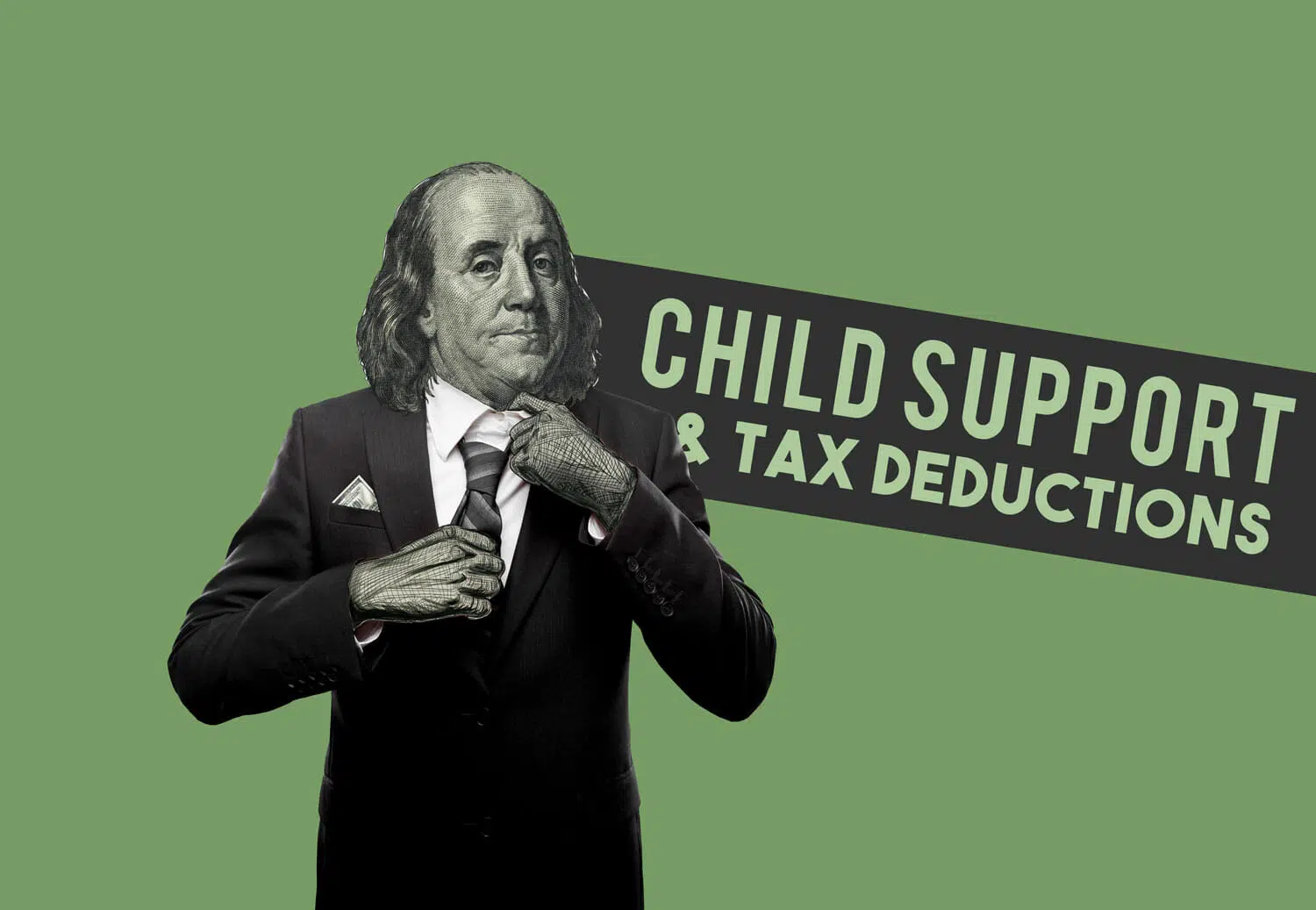The tax consequences of separation and divorce tend to sneak up on men and surprise them, roughly around the middle of April each year. While you spend nearly 50 weeks trying to put the inconvenience, mental anguish and emotional upheaval out of your mind, for around two weeks every April Virginia’s local and state governments (and the federal government) like to remind you of your past. For example, is child support a tax deduction? Ah, here we deep dive into the Internal Revenue Service’s parentheses-filled world of paragraphs (and subparagraphs) and [indented], nested lists and a) subsections that b) swirl like a c) bowl of alphabet soup.
Child Support and Deductible Income
Child support is not deductible from your income, if you as the non-custodial parent are paying the children’s mother for the care, feeding, housing and Play Stationing of your children. If this makes you feel any better, your spouse does not declare the child support as income. (Though that probably will not make you feel much better. You have no legal right to ask your ex-wife how she is spending the money you give over for child support, so from her view, it could be “found money” and to heck with Babs and Bobby.)
You are, divorce and all, still the children’s parents, so you have a financial obligation to provide for them.
But … It’s All In The Property Settlement Agreement
When your attorney sits down to draft the property settlement agreement you and your wife will sign as part of the divorce decree, you want to make certain of what is identified as a spousal support (alimony) payment and what is child support. Do not short-change your kids, of course, but the more money you shift from child support to ex-wife support, the better for you on Tax Day.
Many skilled attorneys can get spousal support to expire after a specified time, while child support will continue until your children are 18. You may even find yourself facing a postsecondary education clause, in which you help fund their college or vocational training after they are legally adults.
The Wonderful World of the IRS & Child Support
As we begin our tour of Publication 504, please keep your hands inside your own pockets at all times, to prevent our friendly agents from helping themselves. The wildly popular Publication 204 for 2016 is the IRS’s own “Divorced or Separated Individuals,” written (as many government publications are) anonymously and available for free [!] download or at post offices everywhere every April.
While we can all eagerly anticipate the thrills of the 2017 version, it does not yet exist, but the 2016 cliffhangers will give you chills aplenty. {We can let this little nugget slip: the 2017 version will ALSO be called Publication 504. Yup, every edition back at least to 1994 has the same catchy title.}
Inside this page-turner you will find that you (as the non-custodial parent) can possibly claim your little Babs as a dependent if you provided 50 percent of her financial support through the year. You and your ex-wife have to agree ahead of filing who will take the child as a dependent, because that exemptions also lands you other tax breaks, such as:
- a) Child tax credit
- 2) Head of household filing status
- C) Credit for child and dependent care expenses
- IV) Exclusion from income for dependent care benefits
- 5) Earned income credit
(Things get very IRSy when you have to go to tiebreaker rules if you both claim the child as a qualifying child, or if Babs lived with you each for the same amount of time [and here the IRS even divvies up December 31, so be careful] through the year.) Hey, it is the IRS {which means it’s all about the money}, so the tiebreaker rule favors the parent with the higher adjusted gross income (AGI) for the tax year in question, and in many cases that falls to you, Dad.
So Is It All Bad News?
Well, it is the IRS as we said, so … yeah, it is all pretty much downhill from here. If your divorce occurred during the tax year (yes, we know it had to have; we just mean it occurred last tax year, and is not ancient history), you may have a complicated situation determining your filing status (filing jointly, filing separately, filing as head of household), but the bottom line is, your child support payments, whether $68 (the lowest possible amount according to the Code of Virginia) or $54,624 (the highest possible amount in Virginia’s table) are not tax deductions for you.
Some Cheerful News – The Firm For Men Can Help
If you want a bit of good news, you can at least take comfort knowing your spousal support payments are gross income to your ex-wife, and she must report them. That, of course, means you can deduct payments for spousal support from your income. Just not payments made to care for your kids. We know. It’s a little like being glad you only got struck by lightning once instead of, say, seven times (like fellow Virginian Roy Sullivan, forever marked [get it?] as the “Spark Ranger,” {because he was a Shenandoah National Park ranger}). But we wanted to end on a [relatively] high note.
To discuss tax consequences of your separation or divorce, contact The Firm for Men or call our offices, 757-383-9184. Call today and you can speak with one of our experienced family law attorneys for men ({very nearly [almost]} immediately).


